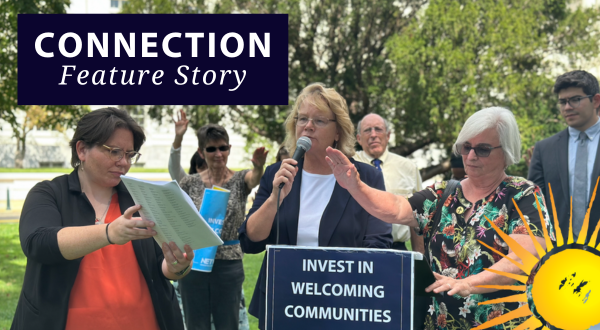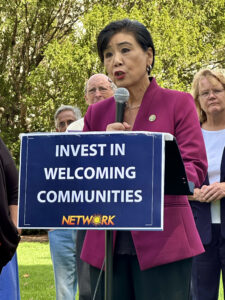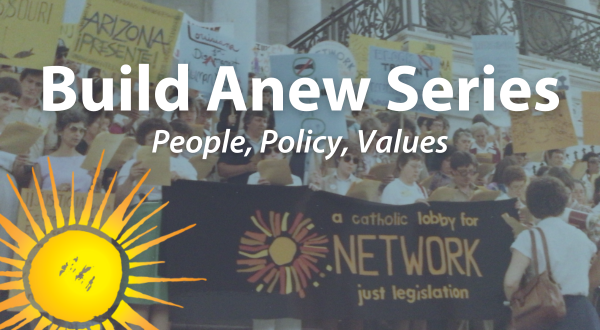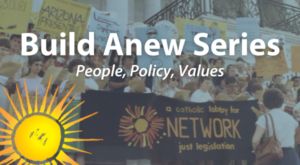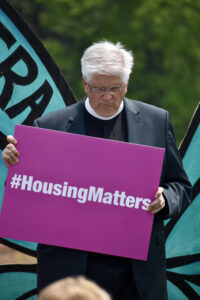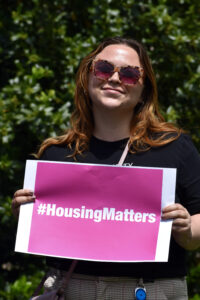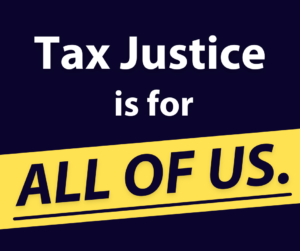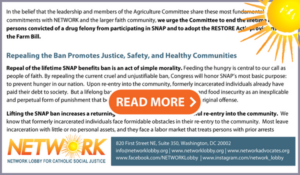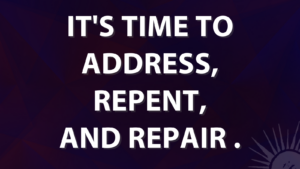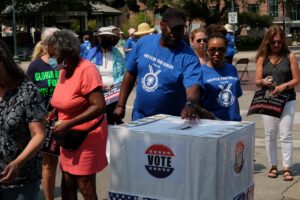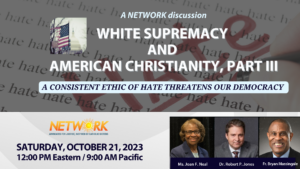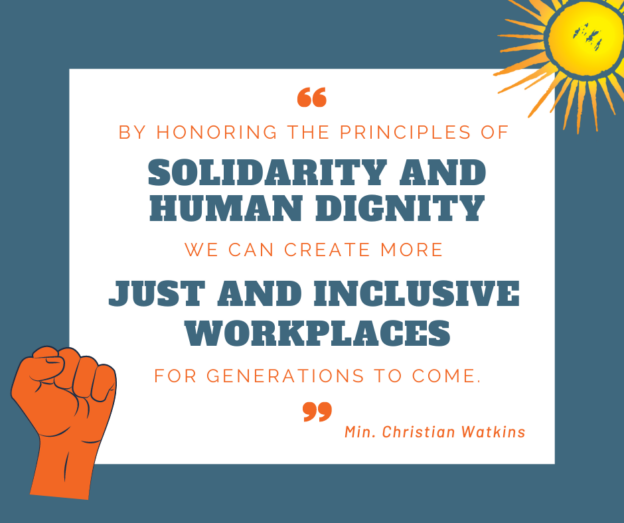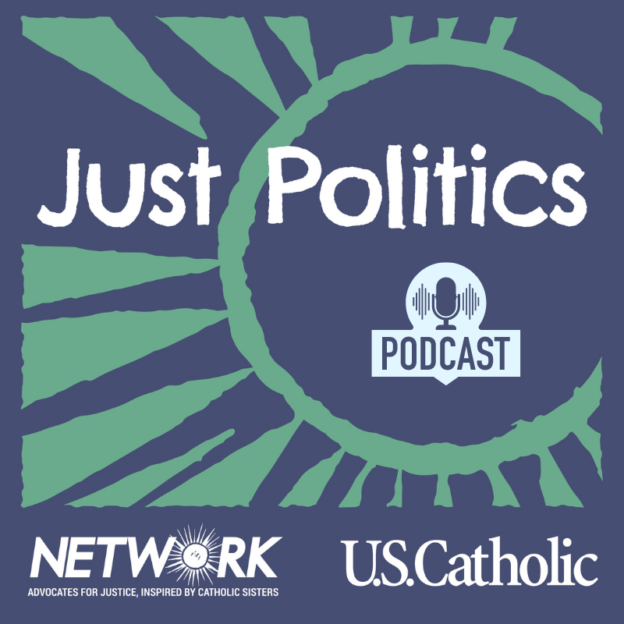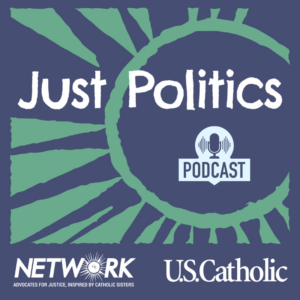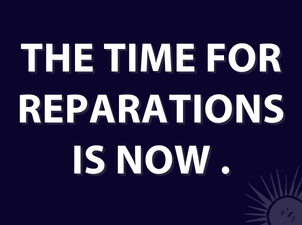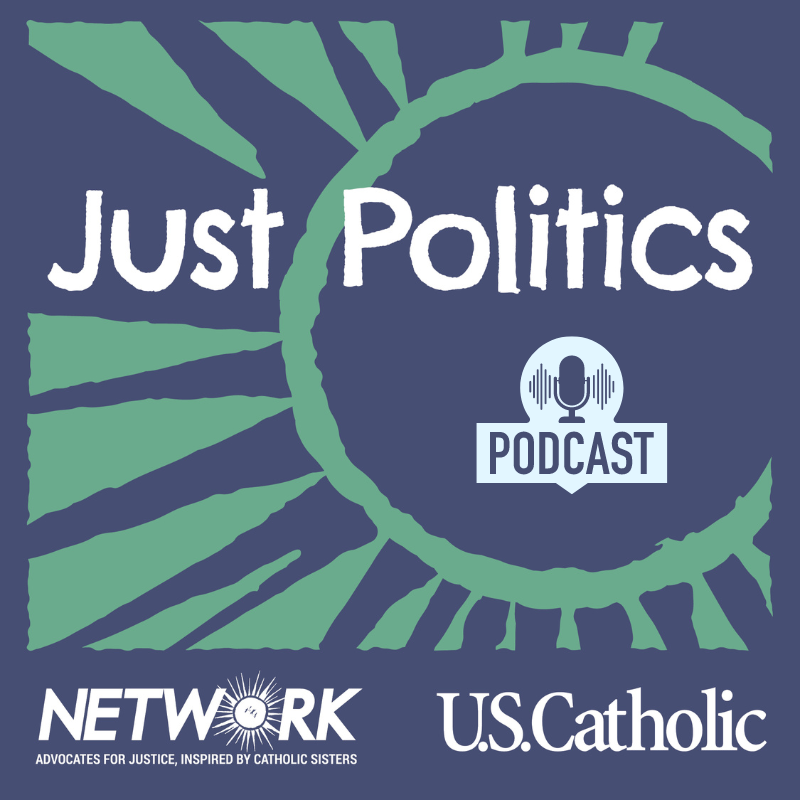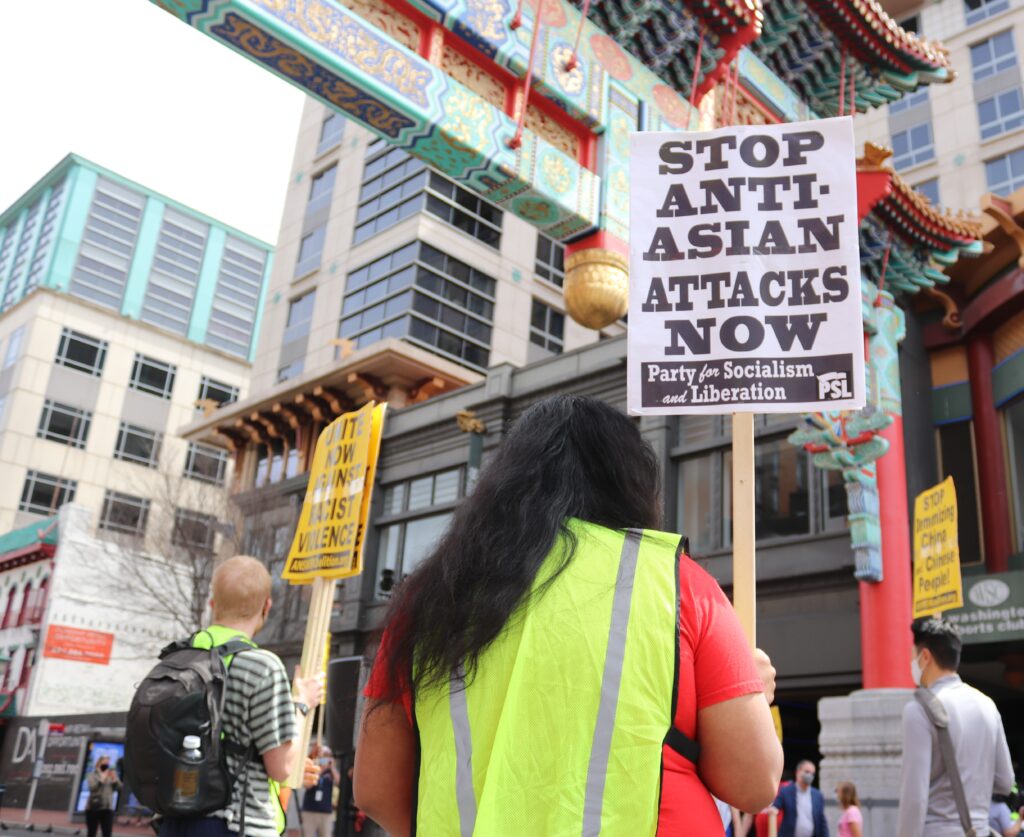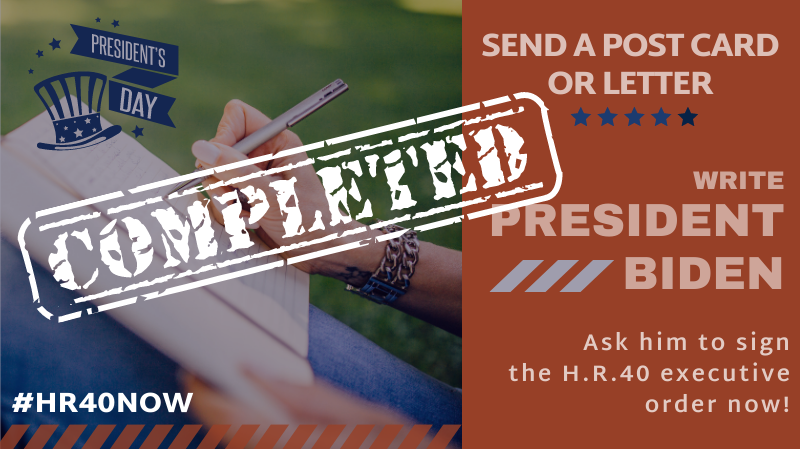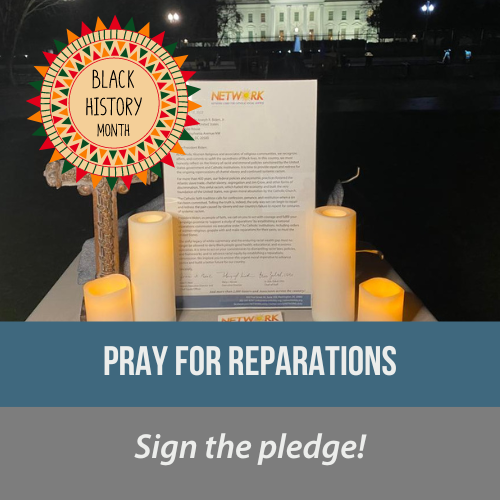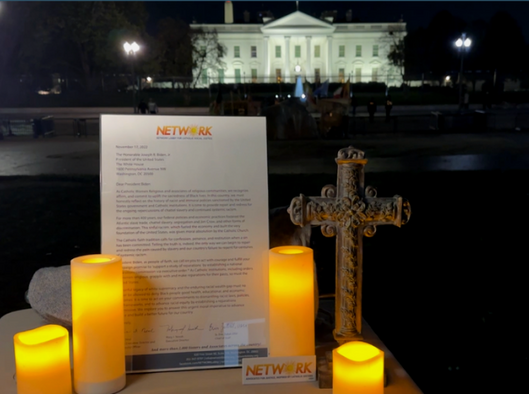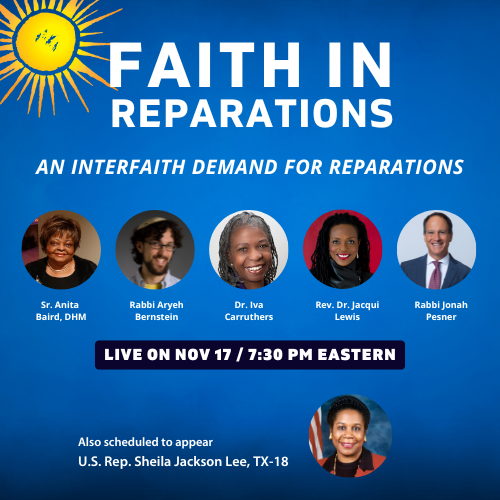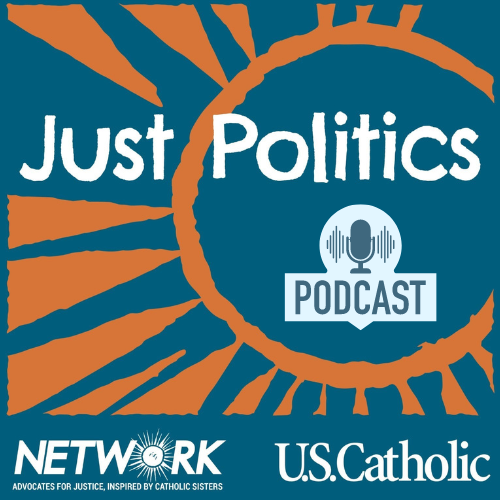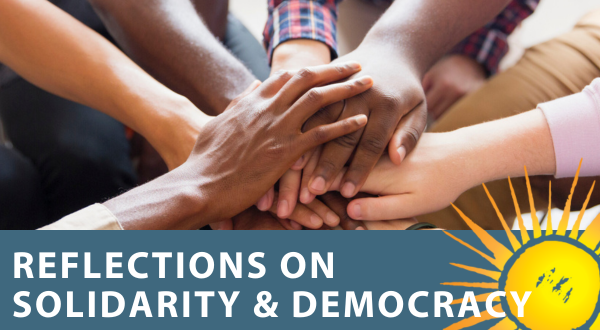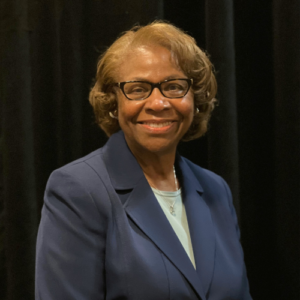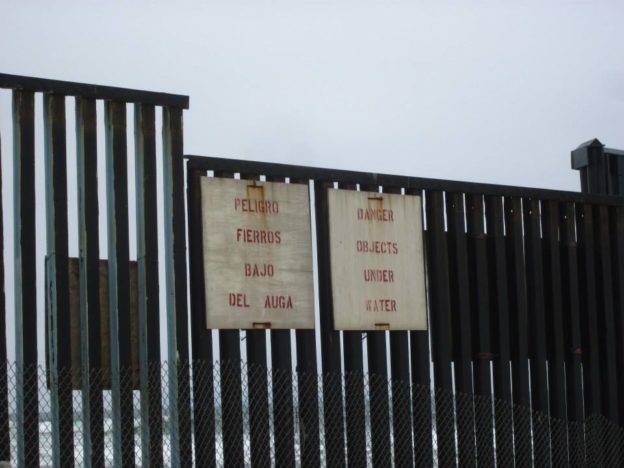
The Need for Welcoming Communities
Congress Can Invest in Welcoming Asylum Seekers Across the U.S.
Jenn Morson
December 5, 2023
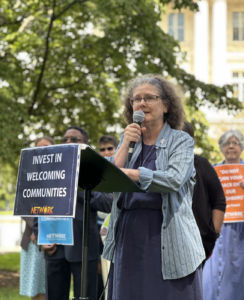
Sr. Susan Wilcox, CSJ, of Brooklyn, N.Y. shares her account of coordinating and serving meals to people seeking asylum who had been bused to New York. She noted how her efforts would benefit from Congress funding the Shelter and Services Program (SSP), which would shift the U.S. response to asylum seekers from militarization at the border to investment in communities across the country who offer a welcoming response to asylum seekers.
“Immigrants and Asylum Seekers Welcome Here!” read the signs held by a handful of supporters stationed behind the podium as several speakers, including three supportive members of Congress, gathered to deliver a letter to Congress signed by over 7,000 Catholics. Gathered September 13 on the U.S. Capitol grounds, members of NETWORK Lobby and other organizations including the International Mayan League, Church World Service, and Women’s Refugee Commission joyfully and emphatically laid out their hopes for a shift in how the U.S. government approaches its response to asylum seekers.
In her opening remarks, Ronnate Asirwatham, Government Relations Director of NETWORK, stated that the purpose of the gathering was to call on Congress to invest in welcoming communities. “Who are welcoming communities?” Asirwatham said, “To put it bluntly, welcoming communities are our community. People who welcome are all of us. It is very natural to welcome. We welcome each other, we welcome strangers, we welcome people seeking safety, and people passing through.”
“While it is most natural to welcome, it seems today that the voices against welcome, especially against welcoming people seeking asylum, [are] getting louder,” Asirwatham warned. “State and federal governments are moving to criminalize welcome. In Arizona, people are being arrested for leaving water out in the desert. In Florida, people are afraid to take their neighbors to the doctor because of pushback. And in Texas, people seeking safety are being pushed back, and Texans wanting to provide them water are not being allowed to.”
In spite of these obstacles, Asirwatham comforted those gathered, saying, “We are not going anywhere. Congress will hear us. Congress must act and enact laws and policies that support us, the American people, that allow us to thrive and reap the benefits that welcoming our fellow human beings allow. This is why our message is simple: we are asking Congress to invest in welcoming communities. We are simply asking Congress to invest in us.”
Gathered Together
Asirwatham introduced many compelling speakers who gave testimony of their own advocacy work as they also encouraged Congress to invest in welcoming communities. Speakers at the press conferences were optimistic despite the strongly worded letter calling for a renewed sense of justice.
U.S. Congressman Joaquin Castro (TX-20) addressed the crowd, thanking NETWORK for being a voice of compassion, conscience, dignity, and reason for human beings. Castro’s own mother previously served on the board of NETWORK. “Your voice and your activism is needed more today than ever,” Castro said. “We need to remind politicians who use migrants as political scarecrows — because that’s what they do, they use them as scarecrows to engender fear and resentment among the American people — we should remind our fellow Americans and mostly politicians that America became the strongest nation on earth not in spite of immigrants but because of immigrants.”
“Instead of embracing our rich immigrant heritage, too many politicians have used our immigrant communities as political pawns by fearmongering and peddling harmful, dangerous, political rhetoric. And the human cost is immense,” said Rep. Judy Chu (CA-28) in her remarks.
Lifting up the leadership and vision of Pope Francis, Rep. Luis Correa (CA-46) said, “One human being suffering around the world is one human being too much.”
In her moving testimony that referenced her own plight as a refugee from Guatemala, Juanita Cabrera Lopez, Executive Director of International Mayan League, gave a message of hope: “I know firsthand what it looks like when a community invests in welcome and justice, and I know it is possible today because many communities are already doing this work.”
Regarding the immigration of Indigenous Peoples, Cabrera Lopez said, “Our ask remains the same. We need long-term investment to continue welcoming asylum seekers, particularly Indigenous asylum seekers.” Cabrera Lopez concluded her speech with a call for investing in shelter for newly arriving families and youth.
Sent Forth
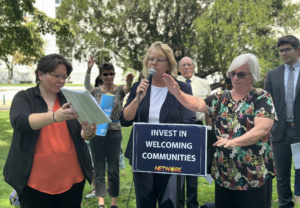
Sr. Eilis McCulloh, HM, holds up a copy of the letter signed by over 7,000 Catholics from all 50 U.S. states calling on Congress to invest in communities who welcome asylum seekers, while Sr. Karen Burke, CSJ, and Sr. Alicia Zapata, RSM, pray a blessing over the letter at the conclusion of NETWORK’s Sept. 13 action on Capitol Hill.
Sister Eilis McCulloh, HM, encouraged those gathered to extend their hands in prayer over the letter to Congress, as Sister Alicia Zapata, RSM, and Sister Karen Burke, CSJ, prayed in gratitude for the signers of the letter while also offering prayers for immigrants, organizations that support immigrants, and for the openness of members of Congress to the message of the letter.
“May this letter, which carries the stories of our immigrant siblings and our hope for immigration reform, be one way that we share in Jesus’ mission to ‘welcome the stranger’ and advocate for immigration policies that invest in communities,” they prayed.
The letter, which was co-sponsored by Hope Border Institute, Kino Border Initiative, the Maryknoll Office for Global Concerns, and St. Columban Mission for Justice, Peace, and Ecology, was addressed to key House and Senate members. It begins with Pope Francis’ 2015 remarks to Congress, in which he urged those gathered to welcome the stranger. The signatories are asking Congress to appropriate funds for supporting immigrants and communities while divesting from programs which militarize the border and criminalize immigrants.
In order to accomplish these goals, the letter urges Congress to fully fund the existing Shelter and Services Program at $800 million in 2024, and to distribute the funding equitably.
Additionally, the letter requests that any funding made available is done so via grant or contract rather than as a reimbursement. Additionally, the letter urges Congress to take back all funding for the border wall construction that has not yet been spent and cut funding for Customs and Border Protection and all other militarized border enforcement agents and technologies, as these agencies are overstaffed and overfunded.
NETWORK and its partners remind Congress that seeking asylum is a human right that should not be restricted, and invite them to embrace the Catholic belief of the inherent dignity of every person and make this a guiding principle to immigration policies, moving away from militarization and towards care.
In the words of Sister Susan Wilcox, CSJ, “We are doing the work. We have the solutions. We just need a little help.”







